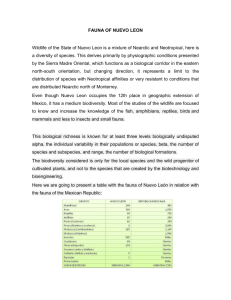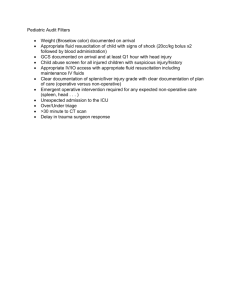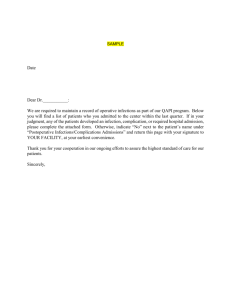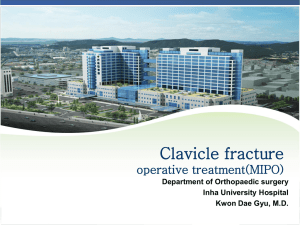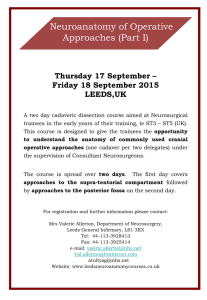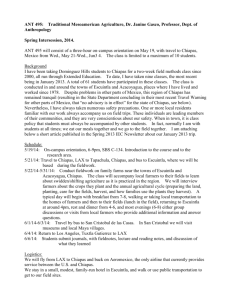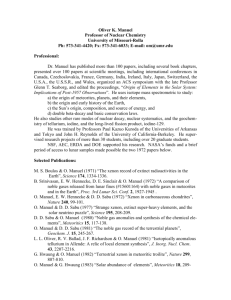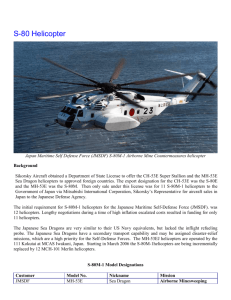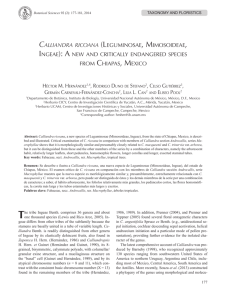On Saturday August 8 2007, a simultaneous police operative was
advertisement
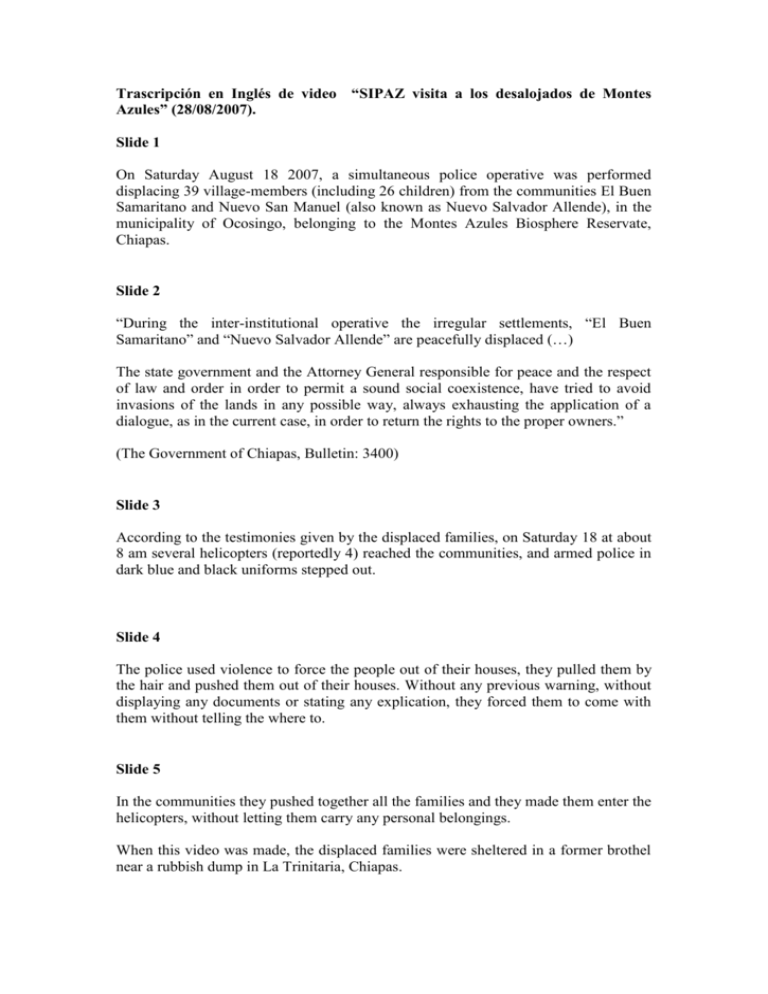
Trascripción en Inglés de video “SIPAZ visita a los desalojados de Montes Azules” (28/08/2007). Slide 1 On Saturday August 18 2007, a simultaneous police operative was performed displacing 39 village-members (including 26 children) from the communities El Buen Samaritano and Nuevo San Manuel (also known as Nuevo Salvador Allende), in the municipality of Ocosingo, belonging to the Montes Azules Biosphere Reservate, Chiapas. Slide 2 “During the inter-institutional operative the irregular settlements, “El Buen Samaritano” and “Nuevo Salvador Allende” are peacefully displaced (…) The state government and the Attorney General responsible for peace and the respect of law and order in order to permit a sound social coexistence, have tried to avoid invasions of the lands in any possible way, always exhausting the application of a dialogue, as in the current case, in order to return the rights to the proper owners.” (The Government of Chiapas, Bulletin: 3400) Slide 3 According to the testimonies given by the displaced families, on Saturday 18 at about 8 am several helicopters (reportedly 4) reached the communities, and armed police in dark blue and black uniforms stepped out. Slide 4 The police used violence to force the people out of their houses, they pulled them by the hair and pushed them out of their houses. Without any previous warning, without displaying any documents or stating any explication, they forced them to come with them without telling the where to. Slide 5 In the communities they pushed together all the families and they made them enter the helicopters, without letting them carry any personal belongings. When this video was made, the displaced families were sheltered in a former brothel near a rubbish dump in La Trinitaria, Chiapas. Caption The former brothel where the displaced families are sheltered. (La Trinitaria, Chiapas) First testimony Nicolasa Hernández Toledo (Nuevo San Manuel) When the displacement occurred first 3 helicopters arrived in order to locate the people and to get them used to them so that they wouldn’t be afraid. They came 3 times. At the day of the displacement, at 7 or 8 o’clock in the morning a helicopter landed in the mountain. Two parashuters had landed and they started to cut down trees with motor-saws so that the helicopters could land. They pushed together the people in the village and told them that they were going to have an assembly but it was a trick, because when they were all gathered all of a sudden they told them that they were going with them and they put them in the helicopters. Second testimony Jacinta Jiménez Clara (Nuevo San Manuel) When the elements taking part in the operative came and entered the village without any permission from the land owners the women of the community asked why they had entered without permission and the police just answered that they were allowed to enter and told them to keep quiet and they took them with them and they [inaudible] and threw their clothes all around the place. The women for a prolongation, for 10 days, and that they wouldn’t displace them now but they wouldn’t allow them that. They also asked them for an explanation of why and what the purpose of the presence of the police was but they only said that no, they weren’t there to explain anything now, and that they had to come with them at once, as well as several persons who were injured, but they took them with the too whether they wanted or not. When they were about to take them to the helicopters one of the policemen took one of the children from its mother and hit in the back, and the woman told him to stop hitting the child because it was ill, but the policeman said that it didn’t matter and he pushed the woman and the child. They wanted to resist but they couldn’t because there were persons in the operative who understood tzeltal so everything they were saying the police understood, because some of them where tzeltal as well. Third testimony Dominga Ruiz Hernández (Nuevo San Manuel) At this moment of the operative policewomen where also participating and they tried to detain them but [inaudible] and when they tried to defend their rights they didn’t give them an opportunity to do so and said that they didn’t have right to talk or right to their children and that they had to keep quiet because this was a displacement, that’s what the policewomen said. Fourth testimony Nicolasa Hernández Toledo (Nuevo San Manuel) They said that when they asked them about something they told them not to bother them and to keep quiet and that if they wouldn’t keep quiet they would hit them in the back, kicking them or with a knee. When they came to La Trinitaria with the helicopter, how many nights where they there? No, first they arrived at the cross-road in Comitán and they came to a school here in La Trinitaria. And afterwards they brought them to a big party-hall here in Bien Chocharro and they stayed there for some days and afterwards they took them here. They are very bad off here, there are a lot of small animals in the water-tank but that’s where they have to take their water from to wash themselves and to wash clothes. The room is very bad and no person can live in it because it has been abandoned. It’s a house that has been abandoned during many years and I don’t know who owns it. They don’t want to stay here any longer and they don’t know how long they will put up with it. Every time it rains they get all wet and they cannot sleep, the women are kept awake all night and the children are crying under the rain. They haven’t been able to get into contact with their families who are in the El Amate prison. They say that the displacement was on August 18 and that since then they haven’t been able to come into contact with their husbands in El Amate. They are asking for permission to go to El Amate to be able to talk to them. When this video was shot, six men were held in detention in the penitentiary centre “El Amate” (CERESO 14) after the operative, charged with damage to private property, ecological damage, illegal occupation, criminal association and carrying of fire arms. Neither of the families transferred to La Trinitaria had been able to get into contact with them. Source: Human Rights centre Fray Bartolomé de las Casas, Urgent Action, August 21, 2007.

